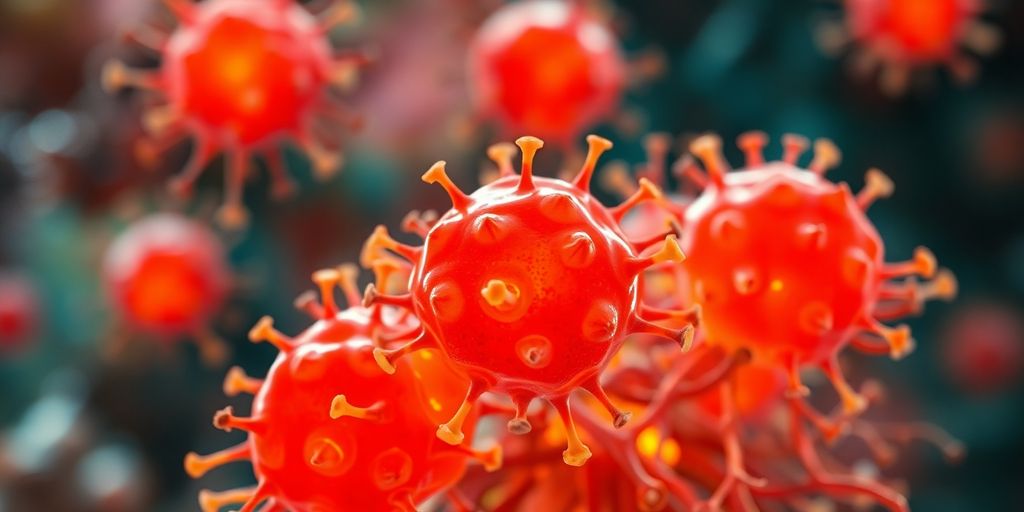The Cancer Expert: “This Common Food Is Making Cancer Worse!”

Cancer is a growing concern worldwide, with millions diagnosed each year. Dr. Thomas Seyfried, a professor at Boston College, has dedicated his career to understanding the origins and prevention of cancer. He argues that cancer is not just a genetic disease but a metabolic disorder influenced by our lifestyle choices. In this article, we explore his insights on cancer, its causes, and how we can potentially prevent it through dietary changes and lifestyle adjustments.
Key Takeaways
- Cancer is increasingly prevalent, with nearly 2 million new cases diagnosed annually in the U.S.
- Dr. Seyfried believes cancer is primarily a metabolic disorder rather than a genetic one.
- Lifestyle choices, including diet and exercise, play a significant role in cancer development.
- Metabolic therapy, including a ketogenic diet, may help in both preventing and treating cancer.
Understanding Cancer’s Global Impact
Cancer is a major health crisis, with the American Cancer Society reporting almost 2 million new cases diagnosed each year in the United States alone. This alarming statistic translates to about 1,700 deaths per day, highlighting the urgent need for effective prevention and treatment strategies. Dr. Seyfried emphasizes that despite advancements in research, cancer death rates continue to rise, making it a global epidemic.
The Misconception of Cancer as a Genetic Disease
Many in the medical community view cancer as a genetic disease, but Dr. Seyfried challenges this notion. He argues that the evidence points to cancer being a metabolic disorder. This perspective shifts the focus from genetic mutations to the metabolic processes that fuel cancer growth. For instance, he notes that cancer cells rely heavily on fermentation for energy, a process that occurs without oxygen and is less efficient than normal cellular respiration.
The Role of Lifestyle in Cancer Development
Dr. Seyfried highlights that our modern lifestyle significantly contributes to cancer risk. Factors such as poor diet, lack of exercise, and environmental toxins can lead to mitochondrial dysfunction, which is a key player in cancer development. He points out that traditional diets of certain populations, like African tribes, showed very low cancer rates until modern lifestyles were introduced.
Common Lifestyle Factors Contributing to Cancer
- High sugar intake: Excessive sugar can lead to increased blood glucose levels, which cancer cells thrive on.
- Processed foods: Diets high in processed carbohydrates can disrupt metabolic health.
- Sedentary lifestyle: Lack of physical activity can exacerbate metabolic dysfunction.
- Environmental toxins: Exposure to carcinogens can damage cellular processes.
Metabolic Therapy: A New Approach to Cancer Treatment
Dr. Seyfried advocates for metabolic therapy as both a preventive and treatment strategy for cancer. This approach includes:
- Ketogenic Diet: A low-carbohydrate, high-fat diet that shifts the body’s energy source from glucose to ketones, which cancer cells cannot utilize effectively.
- Caloric Restriction: Reducing caloric intake can lower blood sugar and glutamine levels, both of which fuel cancer growth.
- Exercise: Regular physical activity can help maintain mitochondrial health and lower cancer risk.
Benefits of Metabolic Therapy
- Reduces cancer risk: By limiting the fuels that cancer cells depend on, metabolic therapy can lower the likelihood of developing cancer.
- Improves treatment outcomes: Patients undergoing metabolic therapy may experience better results from conventional treatments like chemotherapy.
The Importance of Mitochondrial Health
Mitochondria are the powerhouse of our cells, and their dysfunction is linked to cancer. Dr. Seyfried emphasizes the need to keep mitochondria healthy through:
- Regular exercise: Enhances mitochondrial function and energy efficiency.
- Healthy diet: Focus on whole foods, low in processed sugars and high in healthy fats.
- Stress management: Reducing stress can positively impact mitochondrial health.
Conclusion: A Call to Action
Dr. Seyfried’s insights challenge the traditional views on cancer and highlight the importance of lifestyle choices in prevention and treatment. By adopting a metabolic approach, individuals can take control of their health and potentially reduce their cancer risk. As we continue to learn more about the metabolic nature of cancer, it becomes clear that our choices matter.
In a world where cancer rates are on the rise, understanding the role of diet and lifestyle in cancer prevention is more crucial than ever. By making informed choices, we can work towards a healthier future and potentially change the trajectory of cancer statistics for generations to come.








Responses